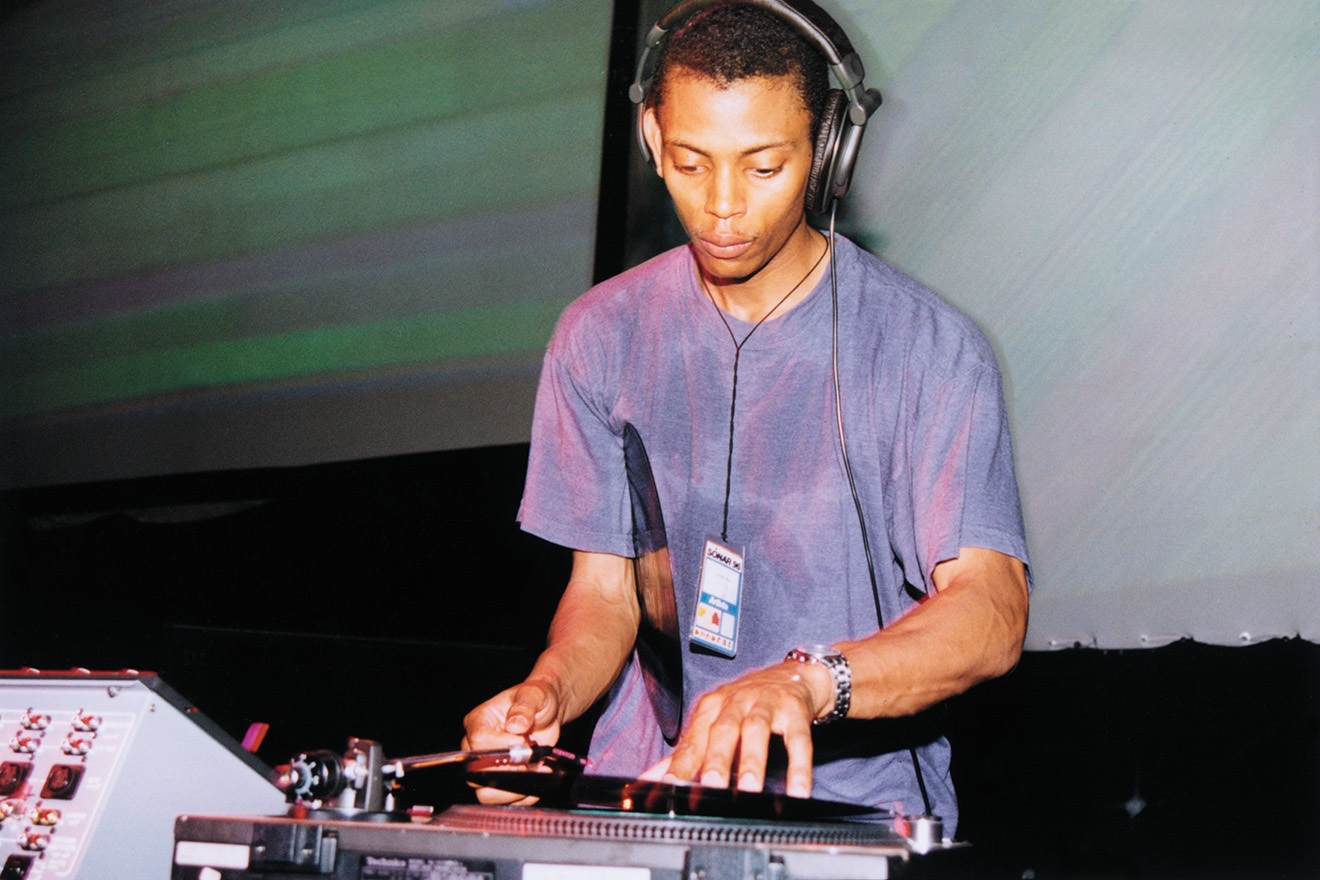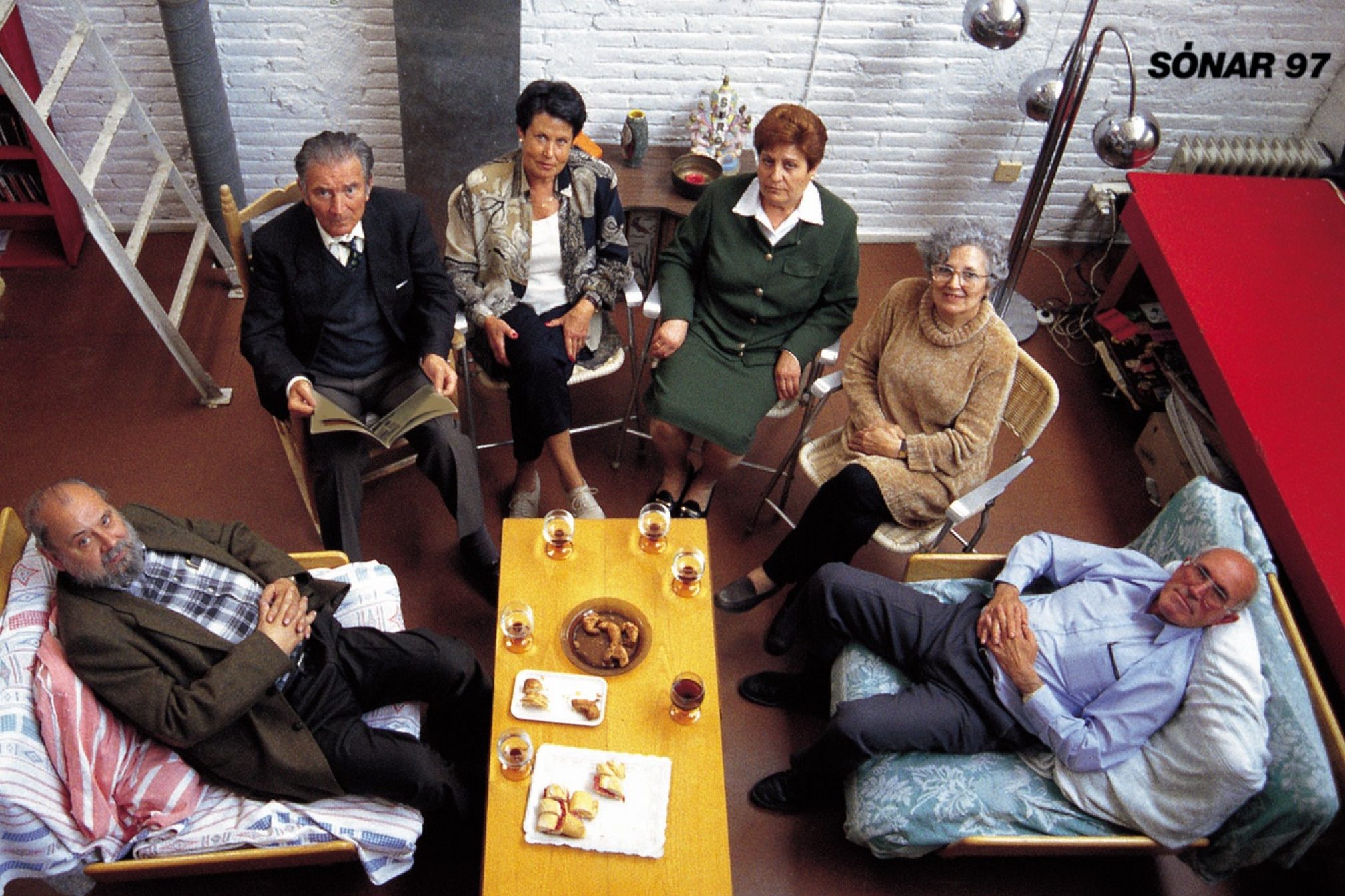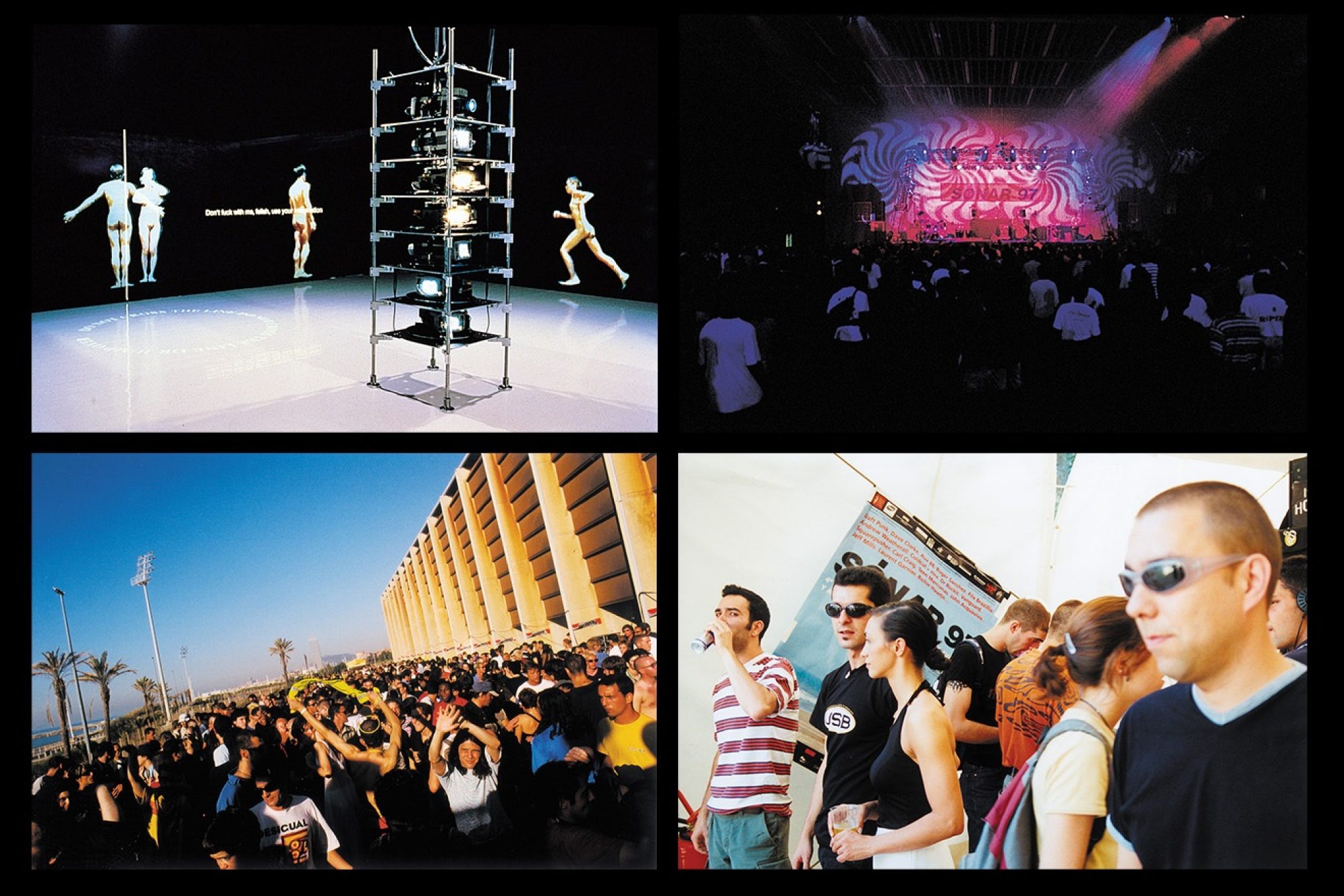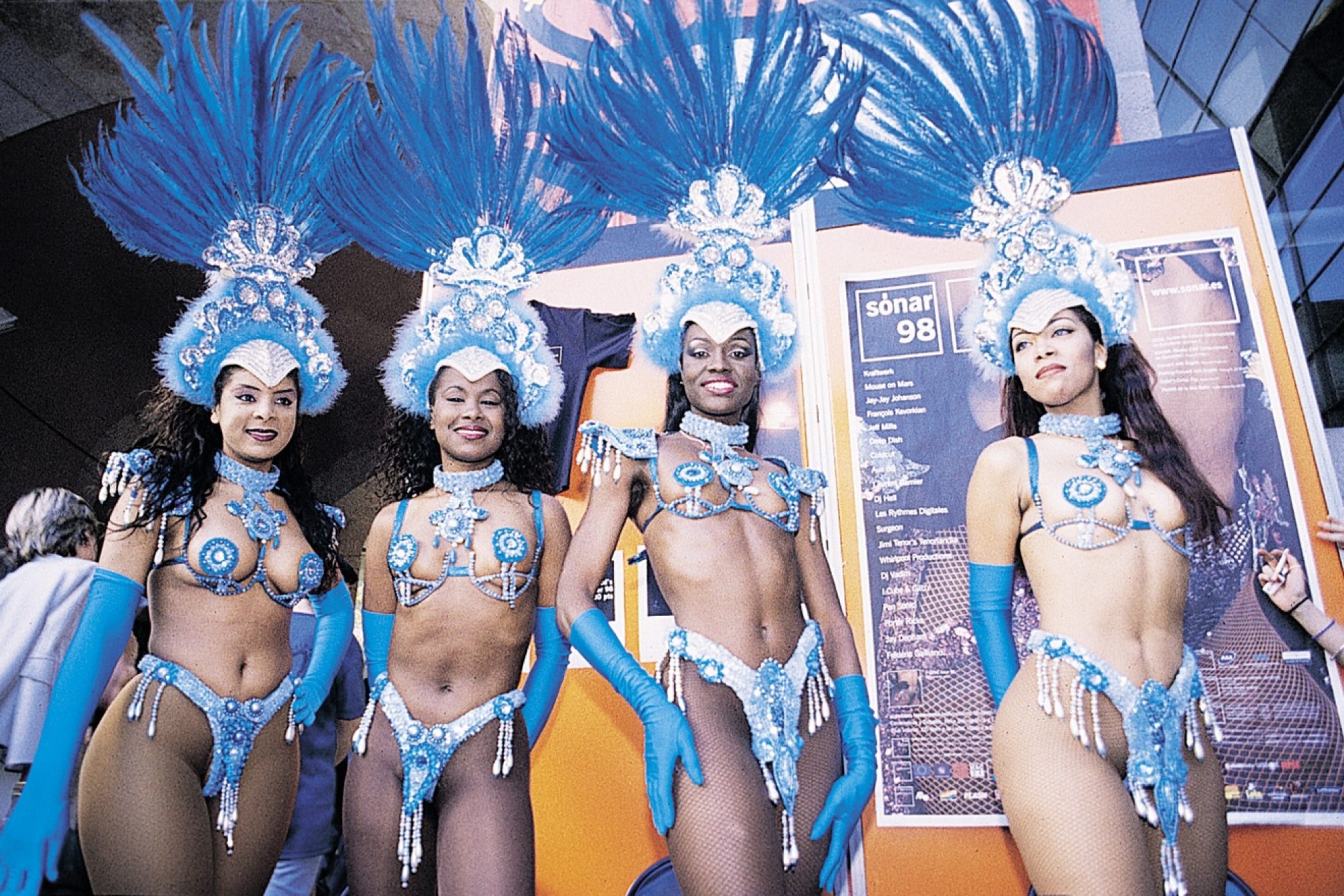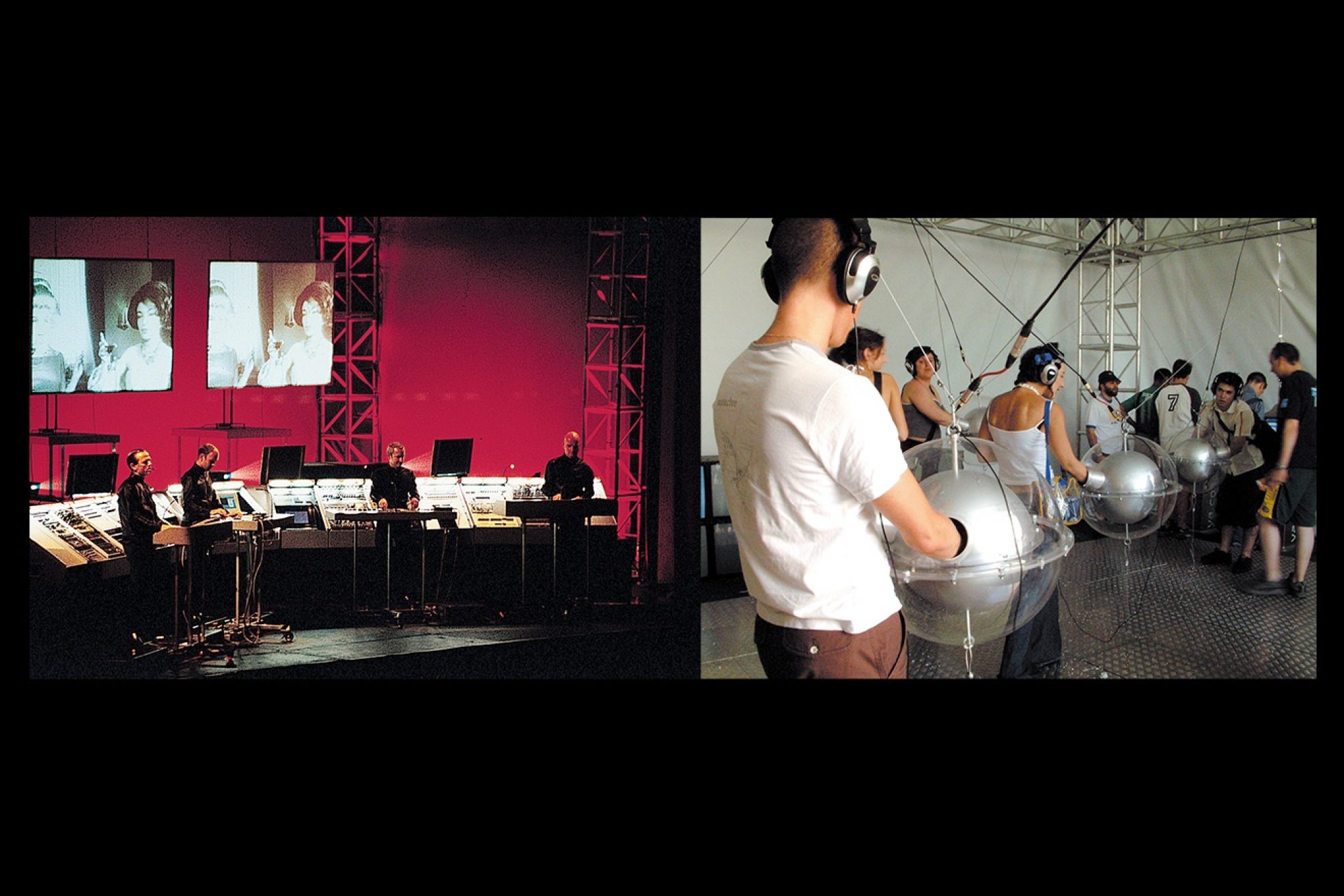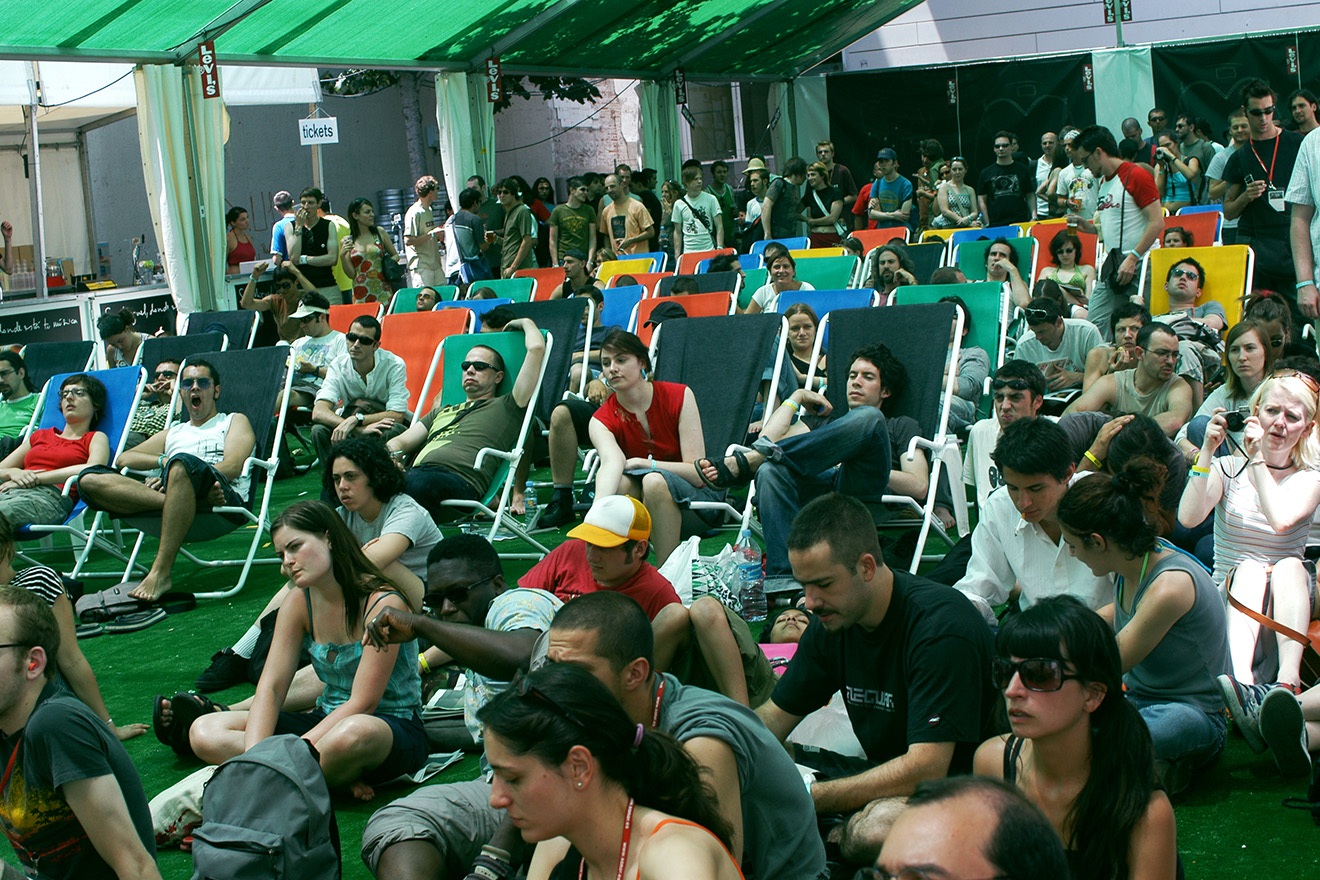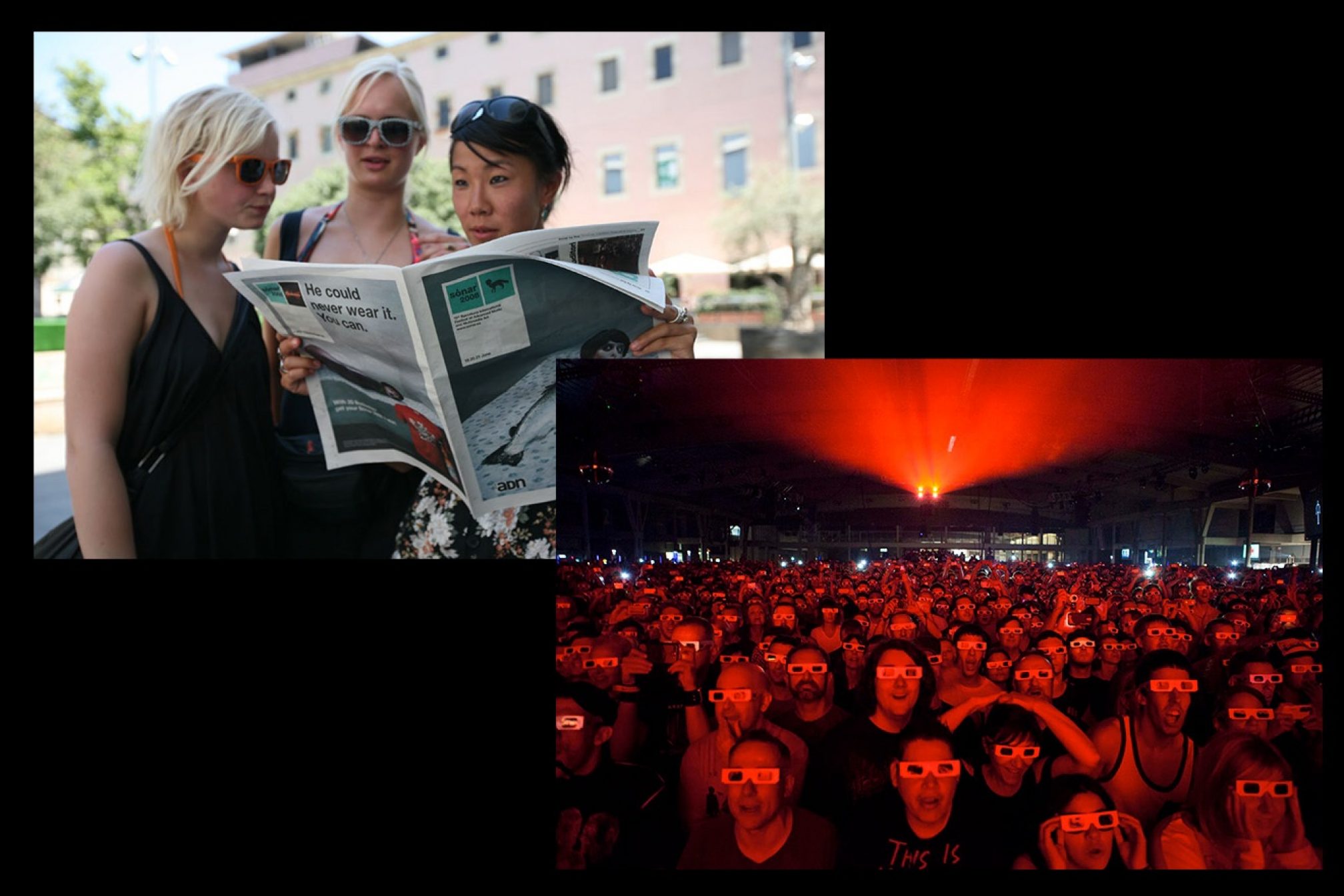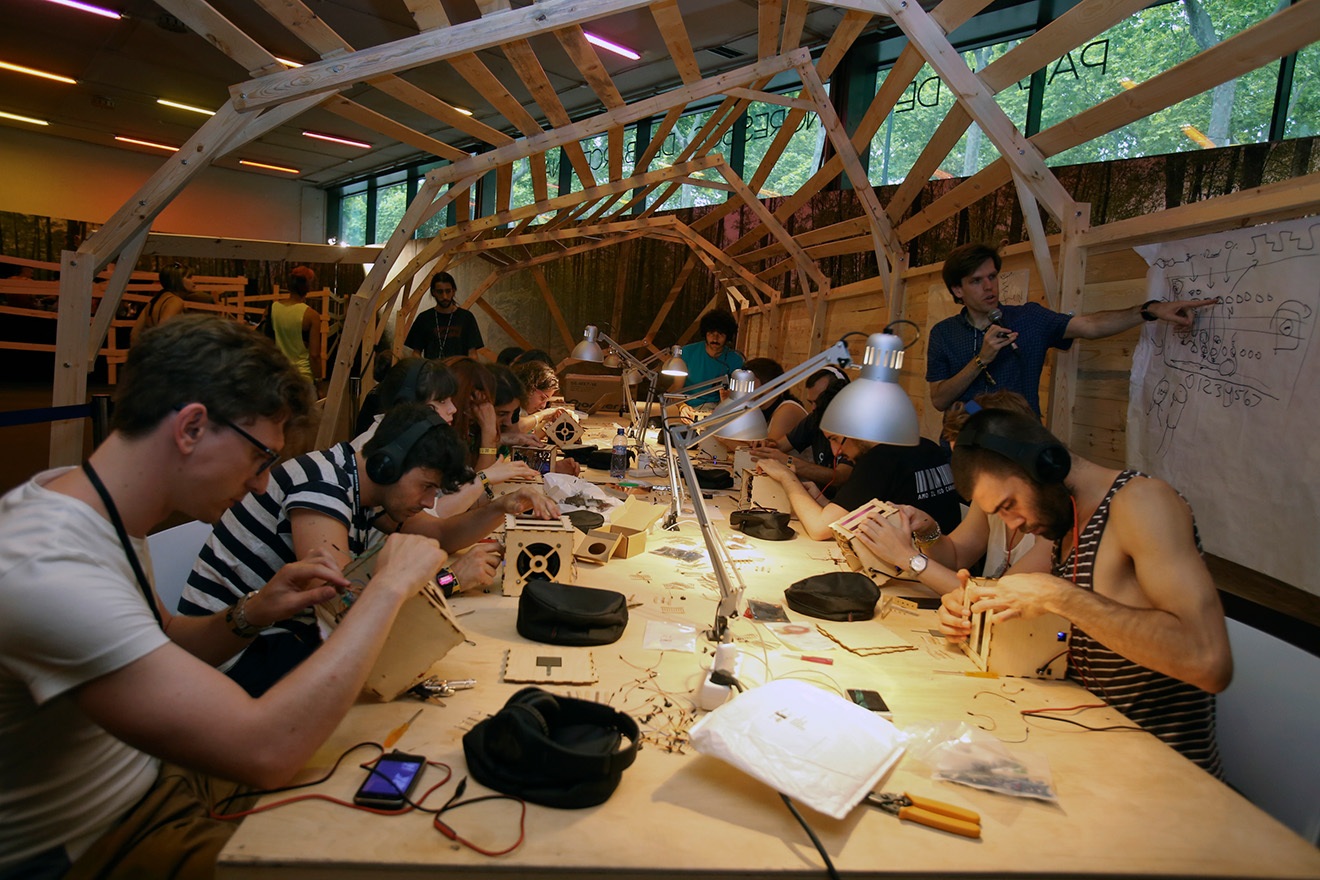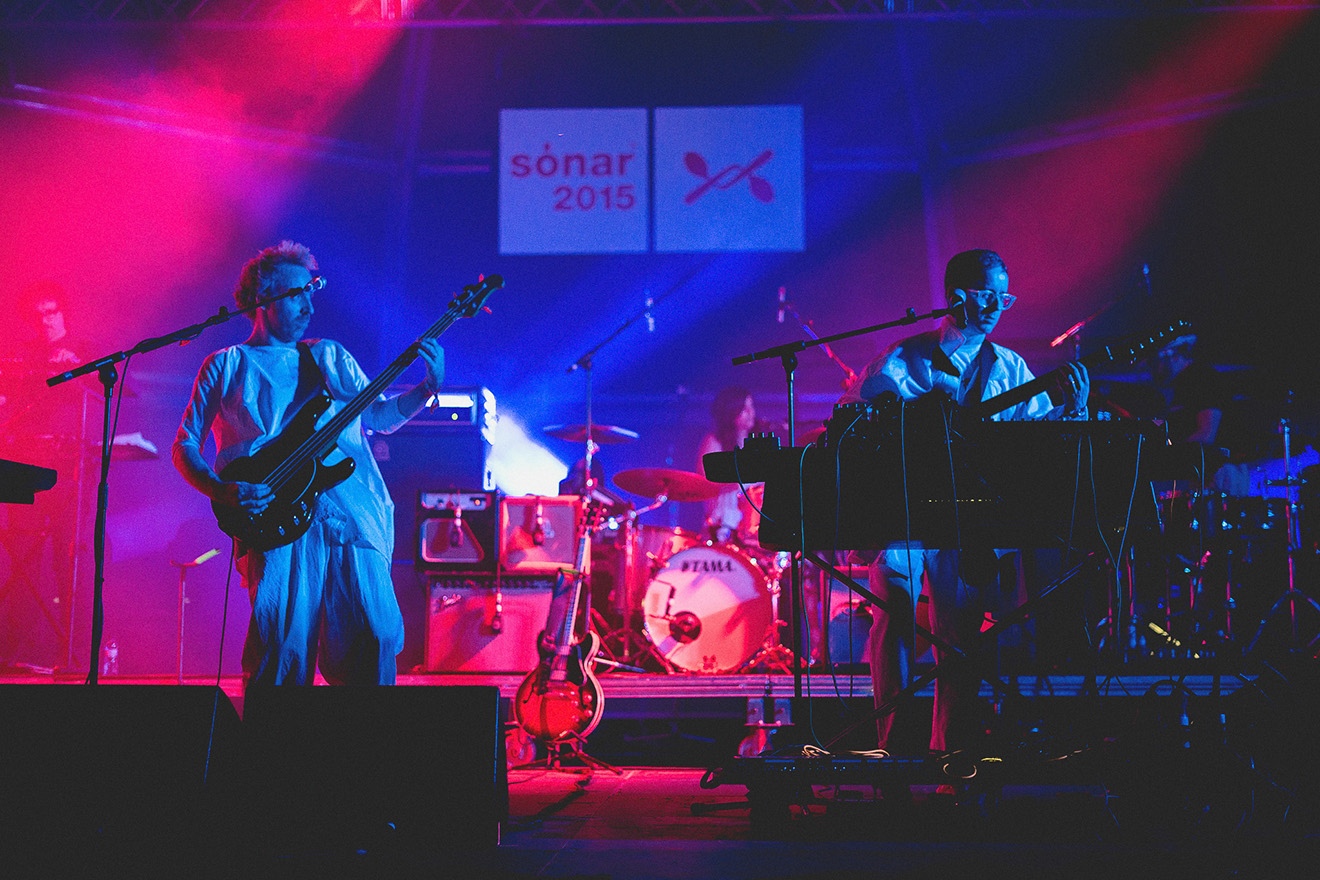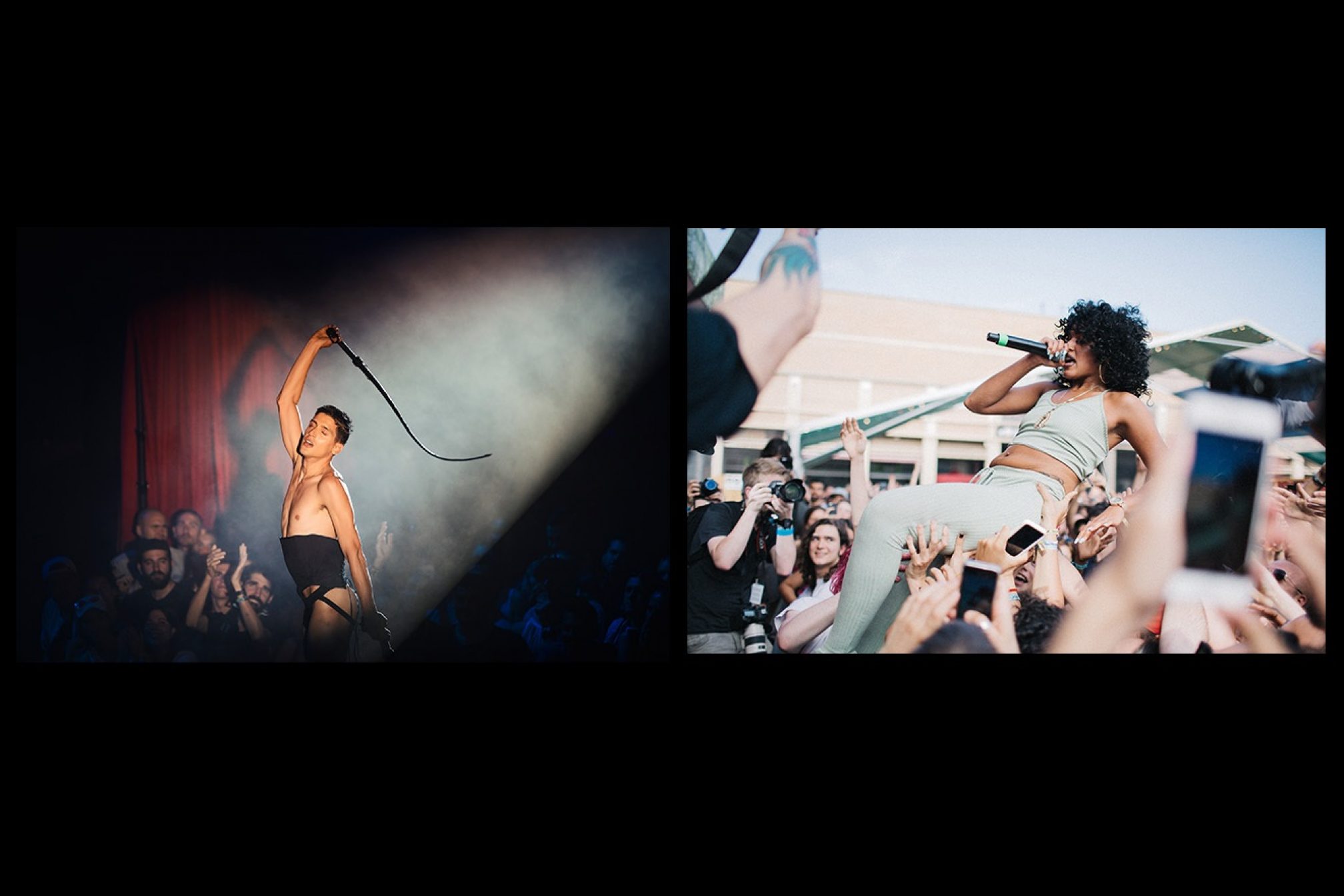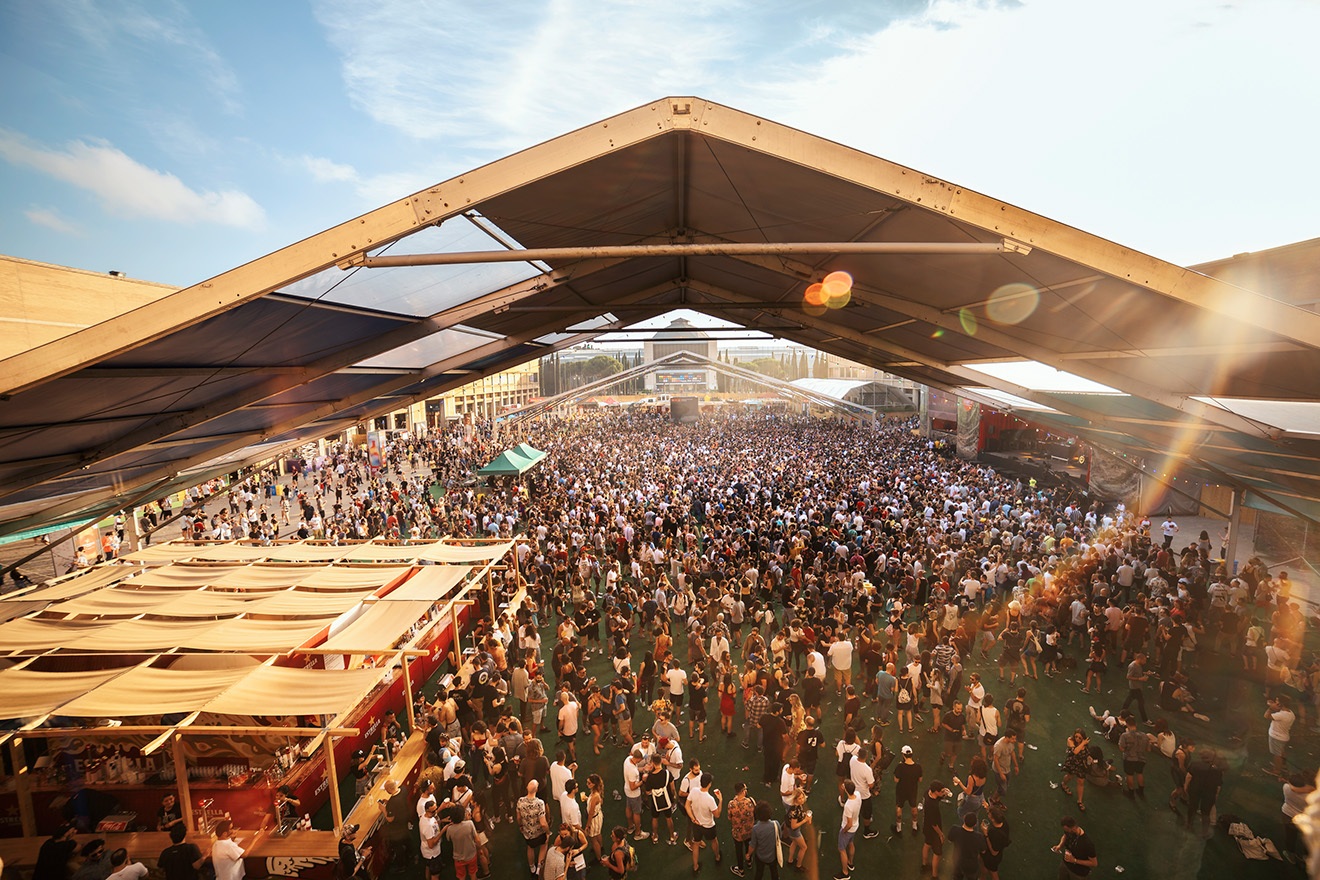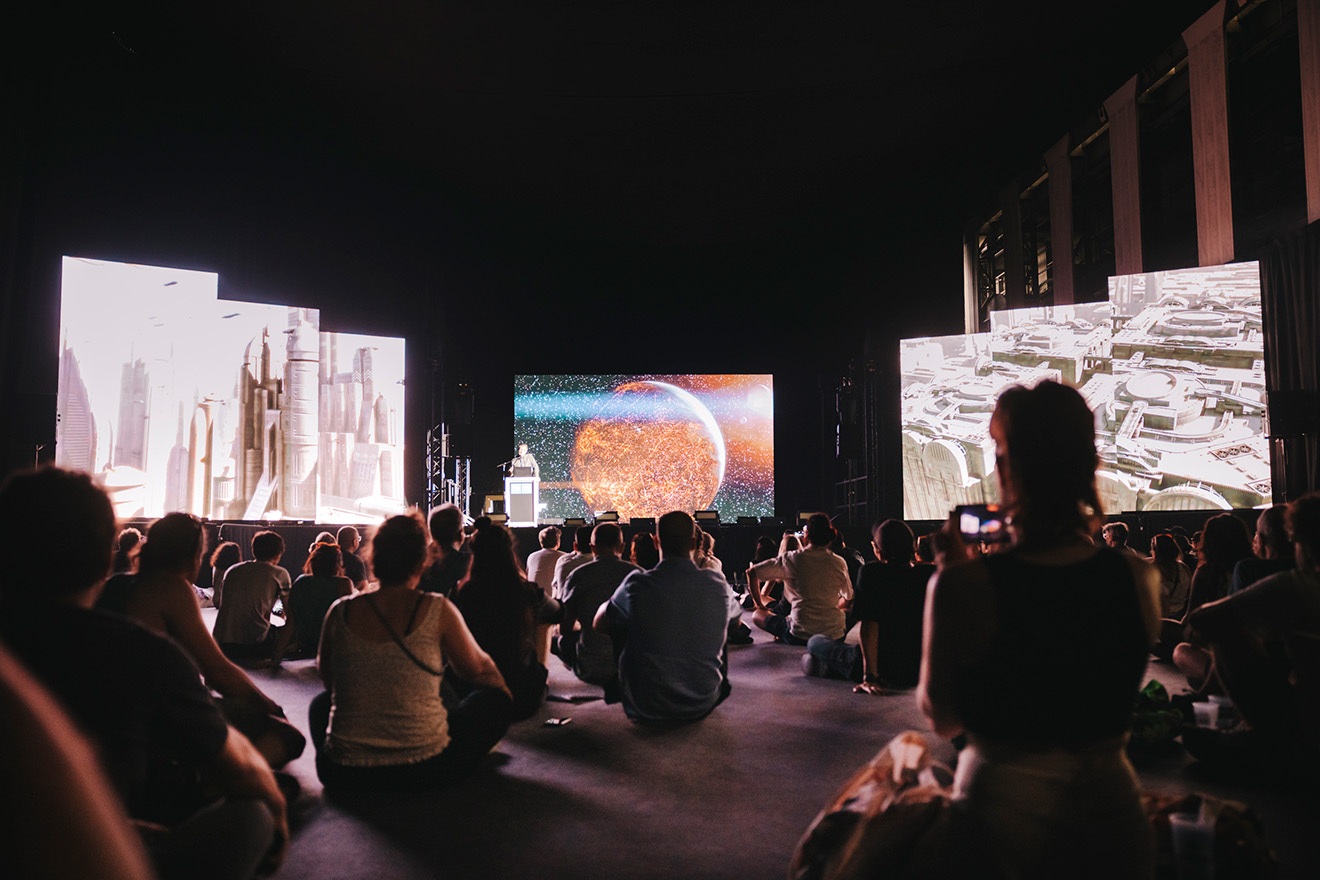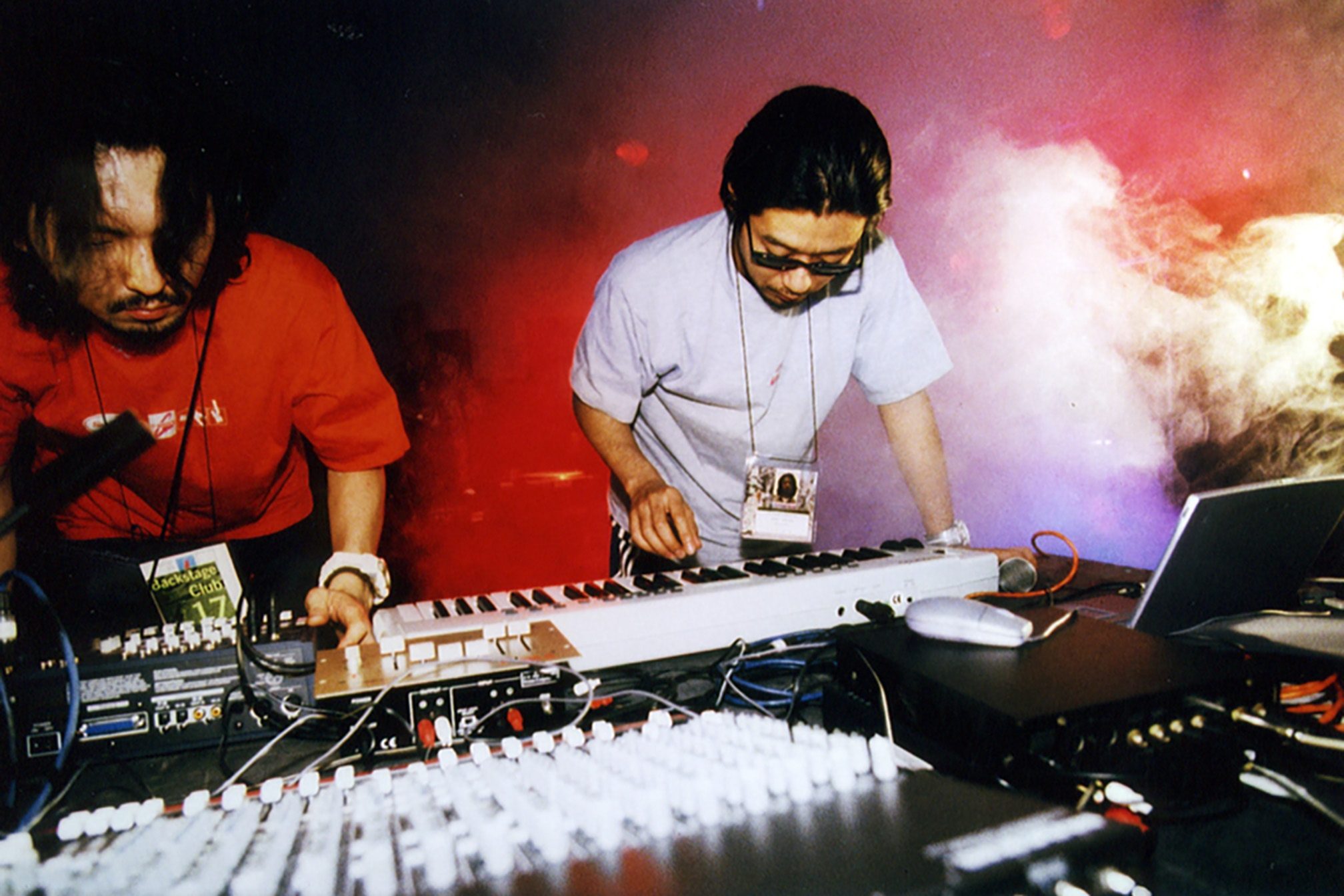 Features
Features
30 years on: Dive into the daring history of Barcelona’s Sónar Festival
We chatted to Sónar’s founders, Enric Palau, Ricard Robles, and Sergio Caballero, on the constant innovation of Sónar throughout the decades
In the blistering summer of 1998, Kraftwerk made their return to stage for the first time in 12 years at Barcelona’s Sónar Festival. Despite a very infant Sónar still tinkering with the mechanics of running such a large-scale event in its fourth year, the group knew exactly where they wanted to make their enormous comeback after more than a decade.
This year, Sónar celebrates 30 years of future-thinking sonics. First launched in 1994 by Ricard Robles, Enric Palau, and Sergi Caballero, the Barcelona-based festival made a mission statement to combine the very best in music, technology, and art, with an innovative edge that continues today. “As musicians and music journalists we’d spent plenty of time in front of the stage, and had travelled to other parts of the world to see music,” Sónar’s founders tell Mixmag. “But we also knew what it was like to be behind the scenes, and what it meant to put something together in the best possible way, the most fun and exciting way, and at the same time to do it in a sufficiently professional way so that people would enjoy it.”
“Sónar was born in 1994 in the musical context of Barcelona where the artistic offerings were scattered, and the distance from Europe was very large,” they explain. “The fundamental idea was to create a shared space to showcase music and art linked to emerging technologies, taking in all the styles that were emerging at the time, no matter how disparate, and paying homage to the pioneers.”
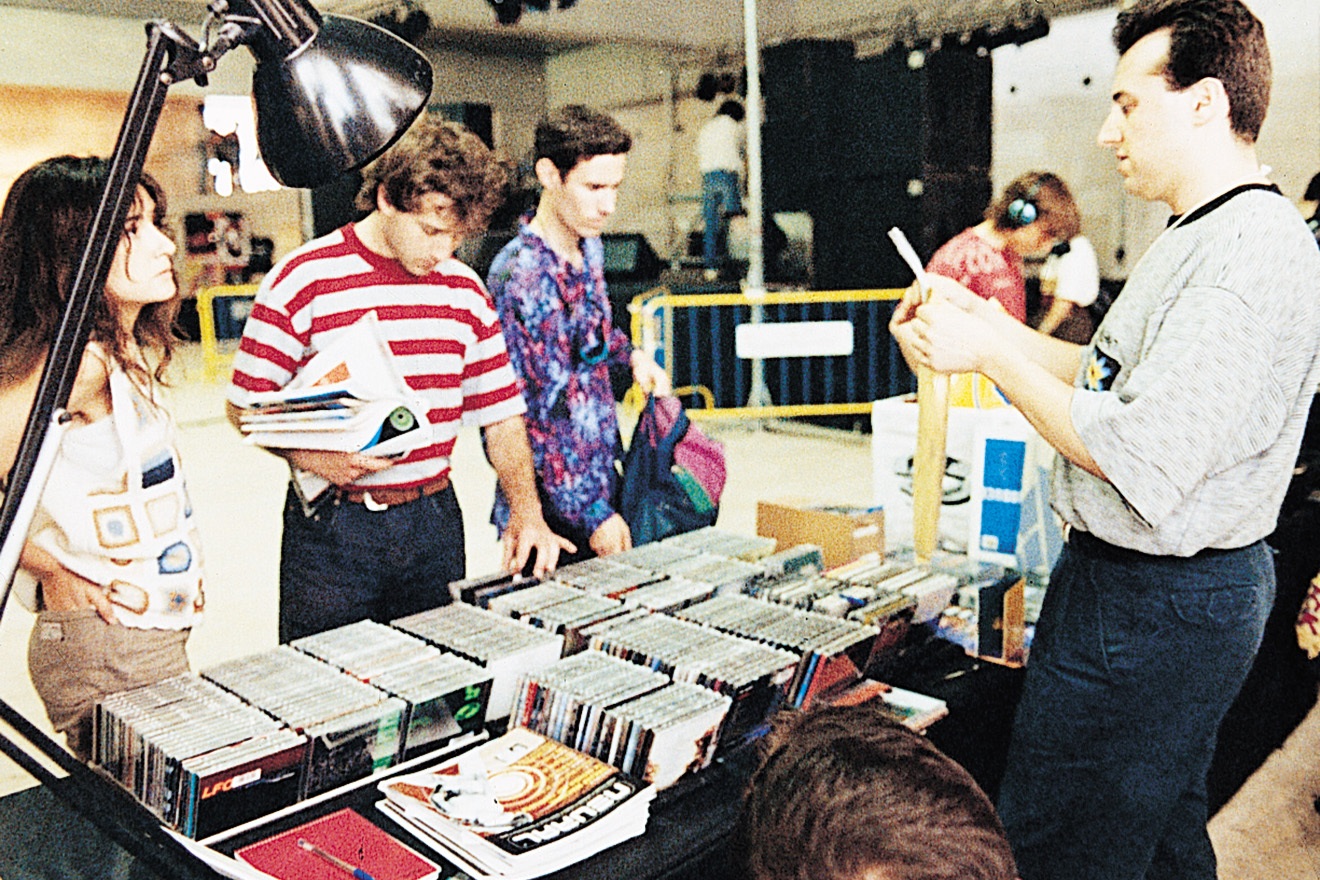
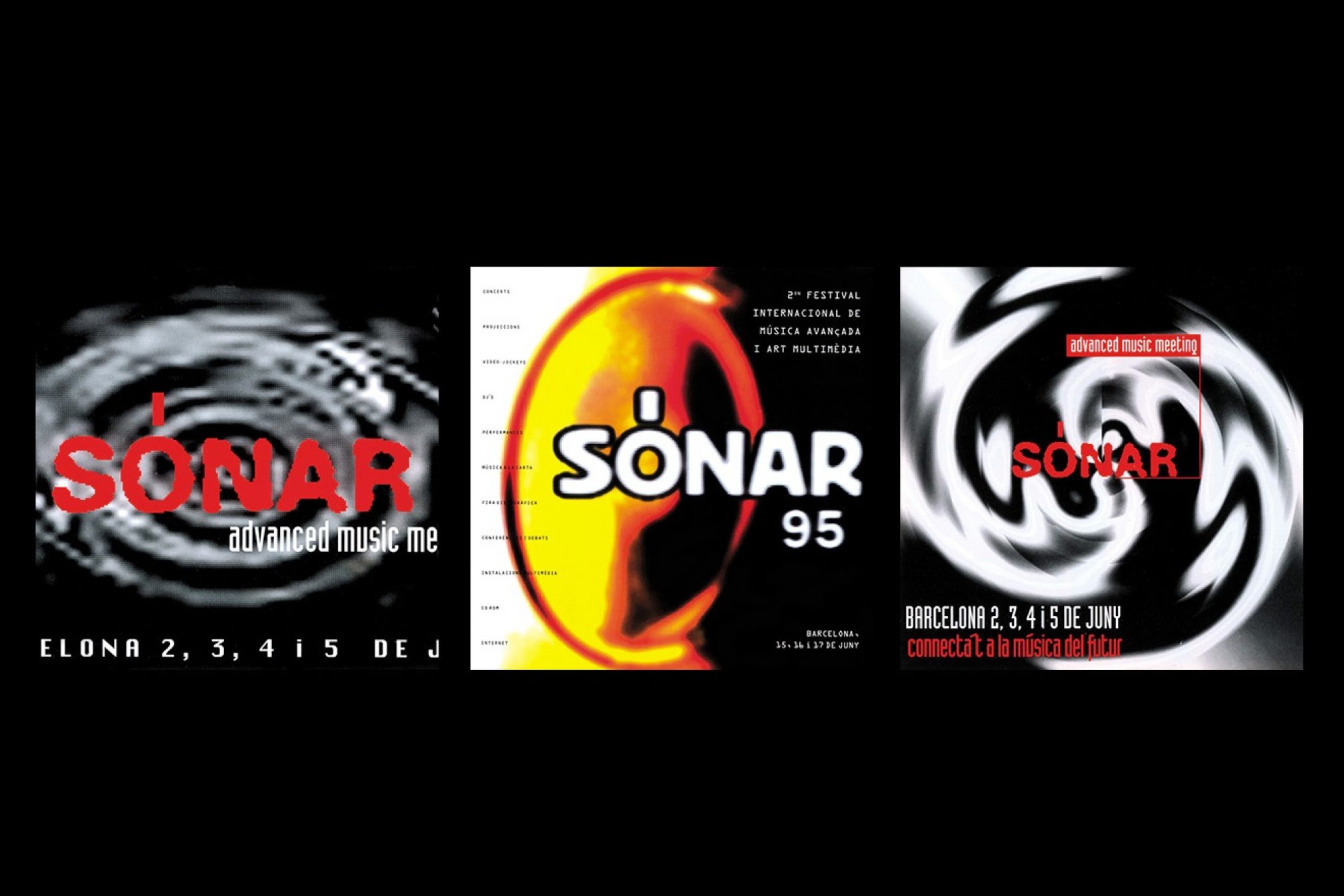
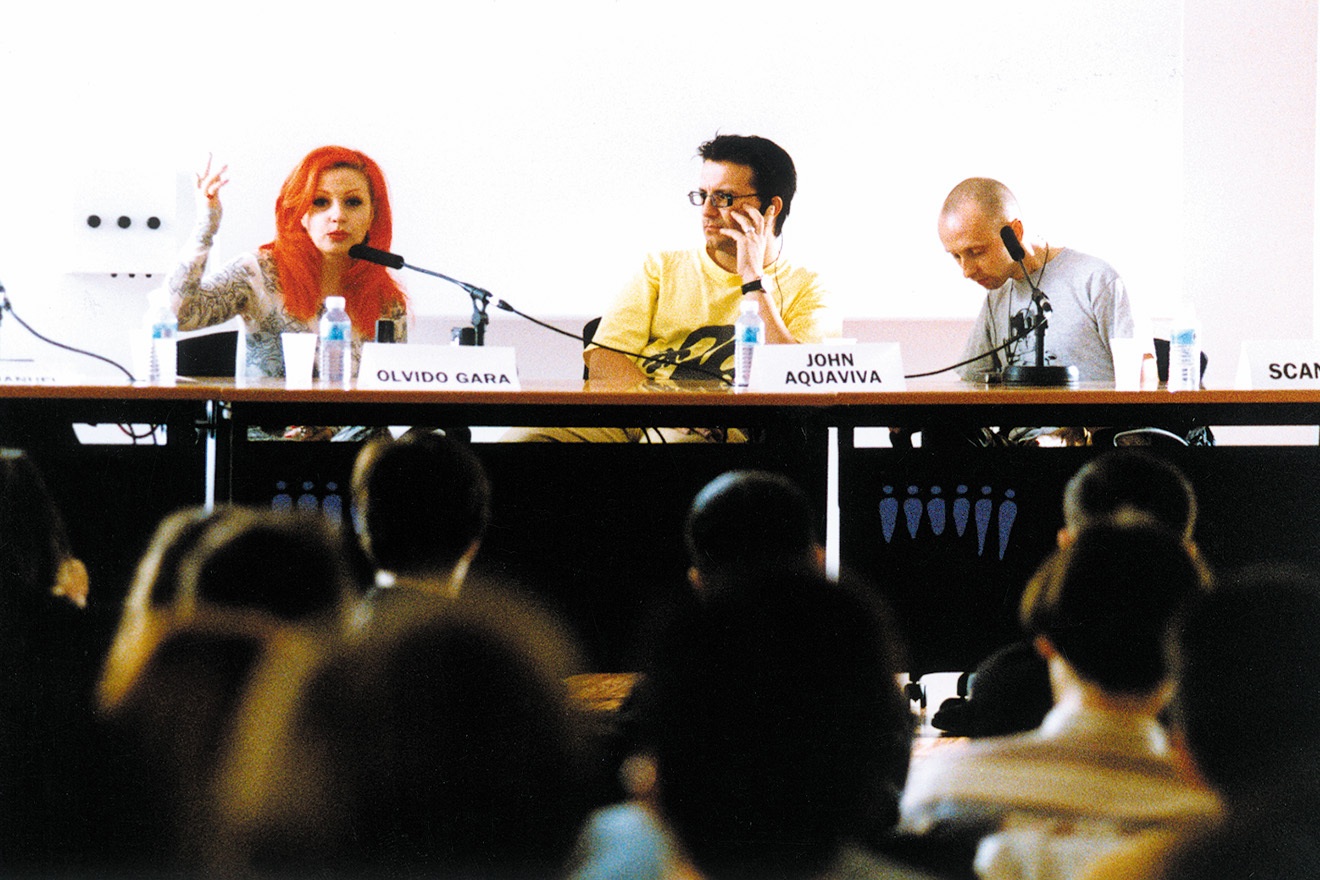
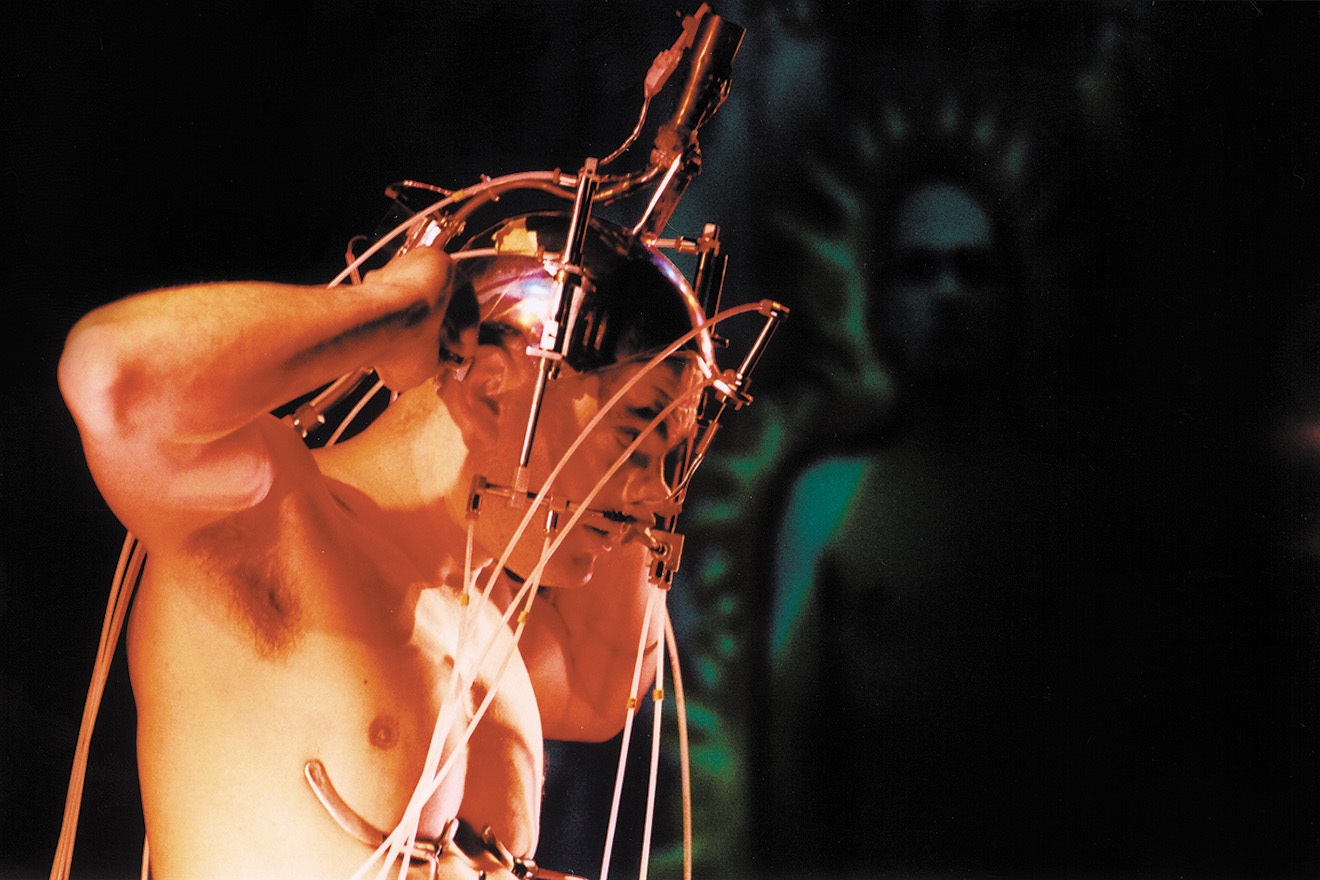
From the get-go, Sónar has brought together entirely different styles of electronic music, pop, hip-hop, and beyond, with an eye for boundary-pushing audiovisual and multimedia creations that add to the sonic experience. Over the years, Sónar has brought some of the world’s biggest international acts including Ryuichi Sakamoto, Björk, Duran Duran, Gorillaz, and De La Soul, while continuing to uphold new artists both locally and internationally. “The booking process is about restlessness and curiosity, the representative value of the spirit of the moment, and it’s something that is part of the way we curate."
“Sónar is a festival where artists can take risks, and which encourages, accompanies and goes with them as far as it can in technical and logistical terms, format and so on. The festival offers itself as a laboratory or platform for artists, where they can try new ways of presenting themselves to the public.”
Each year, Sónar takes place in the heart of Barcelona across multiple venues through its daytime and nighttime programmes, Sónar By Day and Sónar By Night. In the many decades since its birth, offsite events have sprung up across the city including OFFSónar and Off Week, helping Sónar’s presence creep further into Barcelona. “The emergence of satellite events all over Barcelona is a positive consequence that enriches the experience for anyone visiting the city,” say the founders.
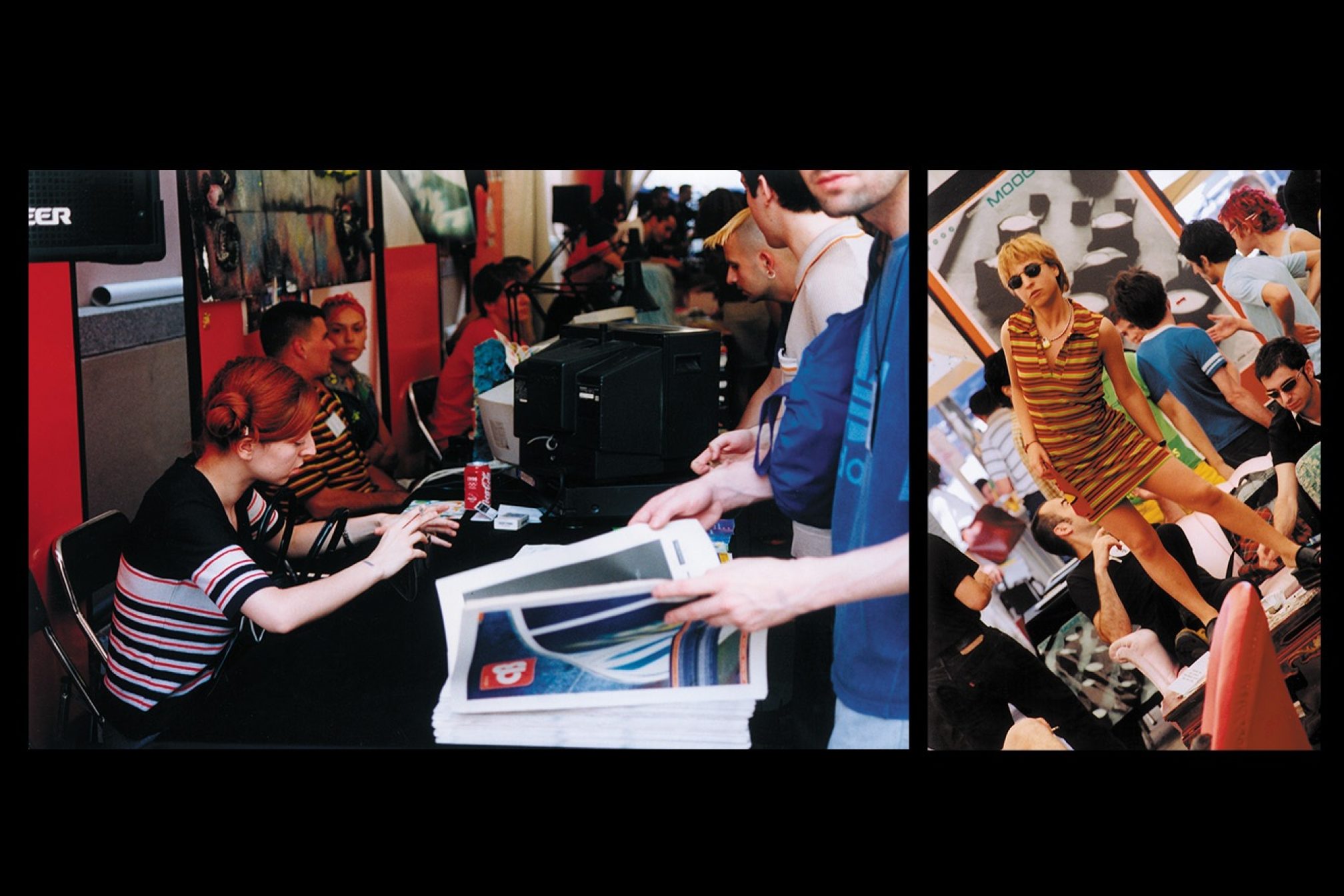
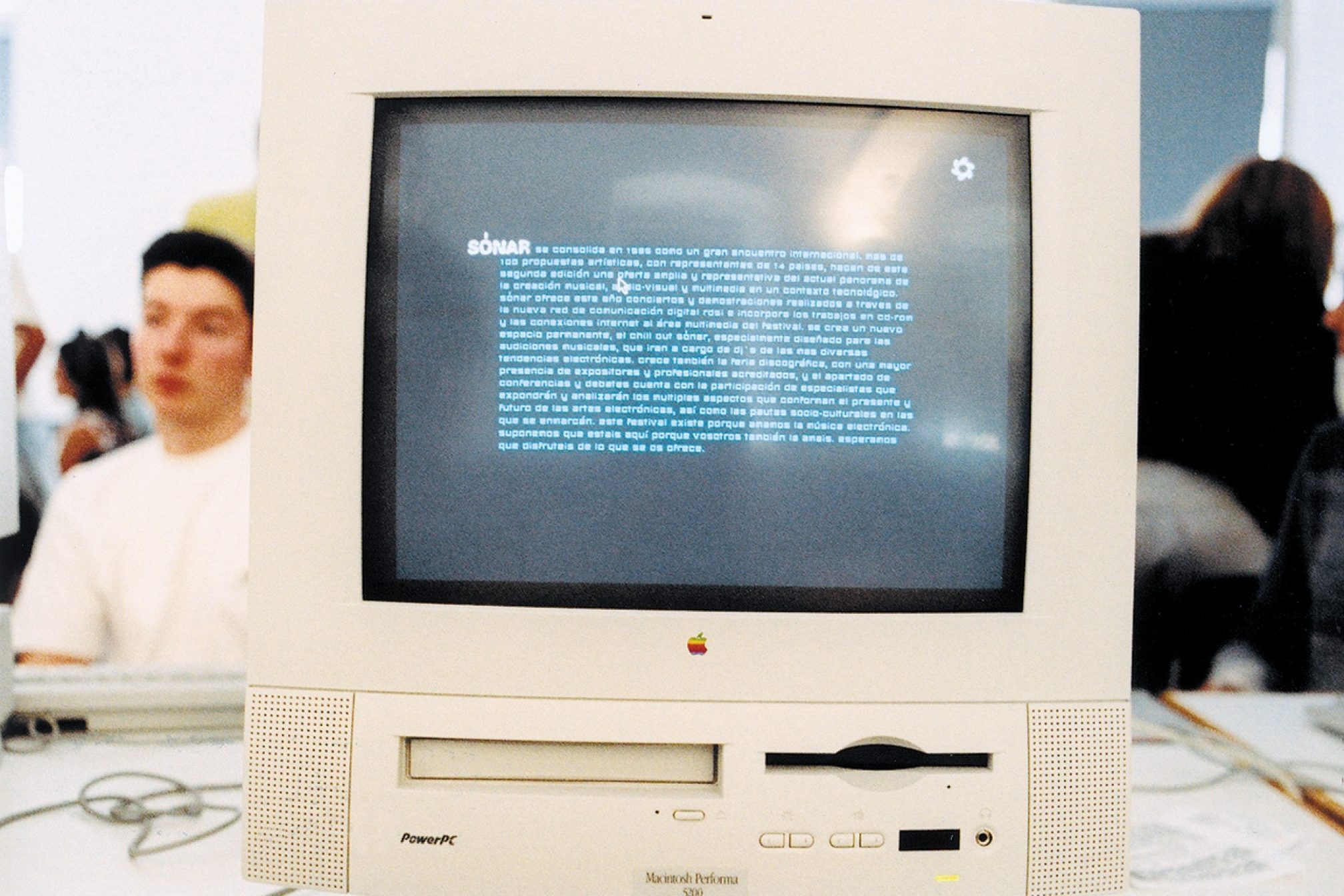
As the festival has grown over the years, so has its outreach, now pulling in pan-European audiences with over 120,000 visitors each year. With its expansion throughout the decades, Sónar has seen a number of different venues from its inaugural home at the Centre de Cultura Contemporània de Barcelona (CCCB), now taking place annually in the Fira Montjuïc facilities at Plaza d'Espanya. Its expansion has also led to new editions popping up around the world from Iceland to Hong Kong. “Each new venue has been a challenge, experimentation and a rethinking. This refers not only to Sónar in Barcelona, but also to Sónar around the world,” say Palau, Robles, and Caballero.
The scientific branch of the festival that runs concurrently with the annual event, Sónar+D, is a space for cutting-edge art, science, and networking. Since 2013, the event has hosted workshops and masterclasses and showcased some of the most exciting advancements in music technology bringing together creatives, designers, scientists, musicians, and thought leaders from around the world. “We started out as an ‘Advanced Music Festival’, which has always meant exploring technological advances in the way artists create,” say Sónar’s founders. “In the last decade, this has translated into informative, immersive activities, and debates concerning topics like blockchain; the climate emergency; Artificial Intelligence; Web3, NFTs, and virtual immersive / augmented realities.”
As Sónar enters its fourth decade, it continues to remain a staple part of Barcelona’s musical hemisphere. This year, the visionary festival celebrates its 30th anniversary from June 15 - 17 with over 100 performances, an extensive day and night programme, offshoot events, a SonarMix podcast series, an Advanced Music programme, and plenty more. “We are excited about the challenges ahead, and also about interacting and working with our team, a group of younger people who provide a lot of inspiration,” say the founders. “It's a team that renews itself over time and includes people who weren't even born in 1994 when Sónar started. With a team like that, you have this incredible vision of both present and future as we move towards the fourth decade of Sónar.”
Check out all the best photos from Sónar Festival throughout the years.
